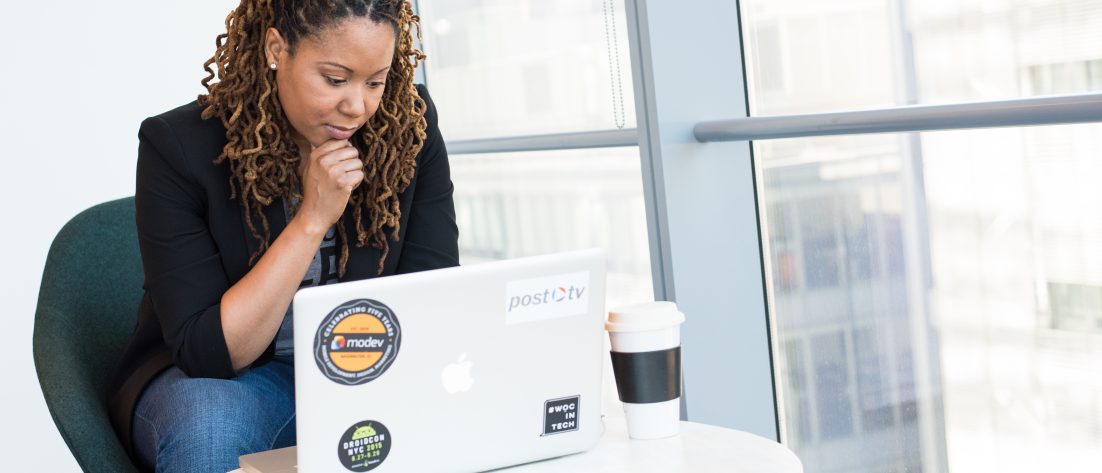How Learning a New Language Can Propel Your Blaxit
DISCLOSURE: THIS POST MAY CONTAIN AFFILIATE LINKS, MEANING I GET A COMMISSION IF YOU DECIDE TO MAKE A PURCHASE THROUGH MY LINKS, AT NO COST TO YOU. PLEASE READ OUR AFFILIATE DISCLOSURE FOR MORE INFO. AS AN AMAZON ASSOCIATE, I EARN A COMMISSION FROM QUALIFYING PURCHASES.
I’ve always been fascinated by the sounds of foreign languages. As a child, I remember watching Menudo on TV and begging my parents to buy me their album. My favorite song was “Coqui”.
Oh coqui,
A tu lado soy feliz.
Spanish isn’t my first language, so I didn’t realize that I was singing my heart out about a frog. I didn’t even know how to properly pronounce all of the lyrics. All I knew was the rhythm was catchy and the song made me happy.
While in school, I studied Spanish for six years and maintained high grades. Unfortunately, I never gained proficiency nor did I achieve the same level of confidence my eight-year-old self had when I was belting out Coqui in my bedroom.
When I started traveling solo a few years ago, I made a conscious decision to travel to countries where English was widely spoken. As a Black woman traveling solo in a foreign country, my main focus was on keeping myself safe. Overcoming a language barrier wasn’t a challenge I was willing to take on at that time. Then along came, Paris.
I decided to visit my friend and former colleague, Marsha in Paris for a long weekend last September. I heard rumors over the years that the French prefer visitors speak the language but in my mind, I had my personal translator in Marsha so I wasn’t at all concerned.
I immediately fell in love with the architecture and ambiance of the city. I felt an overwhelming sense of pride upon learning of the historical contributions of Blacks to French culture. Marsha and I went out to dinner with some of her friends who were kind enough to speak English so I felt included. Although we were having a blast, the more I had to rely on Marsha to speak on my behalf, the more I couldn’t help but feel like a “dumb American”.

In many of the countries I’ve visited over the years, most of the people I encountered were fluent or proficient in a language other than their native language. Yet, in the United States, most Americans speak only English despite foreign language being a high school graduation requirement. According to US Census estimates, around 231 million Americans, or about 80% of the population, speak only English at home.
When I arrived back home, I realized that my dependence on English wasn’t only limiting my travel experiences, it had the potential to limit my career opportunities as well. I knew 2023 was the target for my Blaxit and I didn’t want language to limit my possibilities.
Since I’m always up for a challenge, I decided to learn a foreign language. This time, instead of trying to pick up Spanish, I chose French. Each day, I open Duolingo and practice for 30 minutes. I enjoy the interactivity and challenges which plays well to my competitive nature and my learning style. In nine months of learning, I’ve only missed three days which I’m pretty proud of. Surprisingly, I’ve been able to grasp the language pretty well and I’m able to put simple sentences together. I even sent a few texts to my friend Marsha in French!!
Je veux visiter la France l’année prochaine. J’aime la France! “
Getting Started
Learning another language can feel daunting as an adult versus the carefree nature of a child. My best advice:
- Find A Program That Best Fits Your Learning Style – In order to feel confident and gain competence, you need to play to your strengths.
- Give Yourself Some Grace – You wouldn’t expect a newborn baby to deliver a TED Talk and you won’t become fluent overnight. But with patience and grace, you will learn.
For 1-on-1 Learning:
Italki – Italki boasts over 10,000 teachers providing 1-on-1 learning in any language at very affordable rates. What I found most impressive is that Italki’s platform includes African languages such as Swahili, Swazi, and Somali.

Learning on the Go:
Busuu – offers both free and paid versions of its platform. It is a great option for on-the-go learning. The platform leverages machine learning technology and speech recognition to personalize your study plan. Busuu only supports 12 languages: English, Spanish, Portuguese, French, German, Italian, Chinese, Japanese, Polish, Turkish, Russian, and Arabic, which some may find limiting.
The Original:
Rosetta Stone – is a one of the most well-known language learning options around. The software offers over 27+ languages and can be a pricey option for some. However, some libraries offer patrons the use of Rosetta Stone for free.
Happy Learning!




 Join us for the Move to Portugal Virtual Summit
Join us for the Move to Portugal Virtual Summit  November 3-5, 2023! Are you dreaming of a new beginning in one of Europe’s most enchanting...
November 3-5, 2023! Are you dreaming of a new beginning in one of Europe’s most enchanting...
[…] To read about my time visiting Marsha in Paris, check out “The Language of Learning“. […]